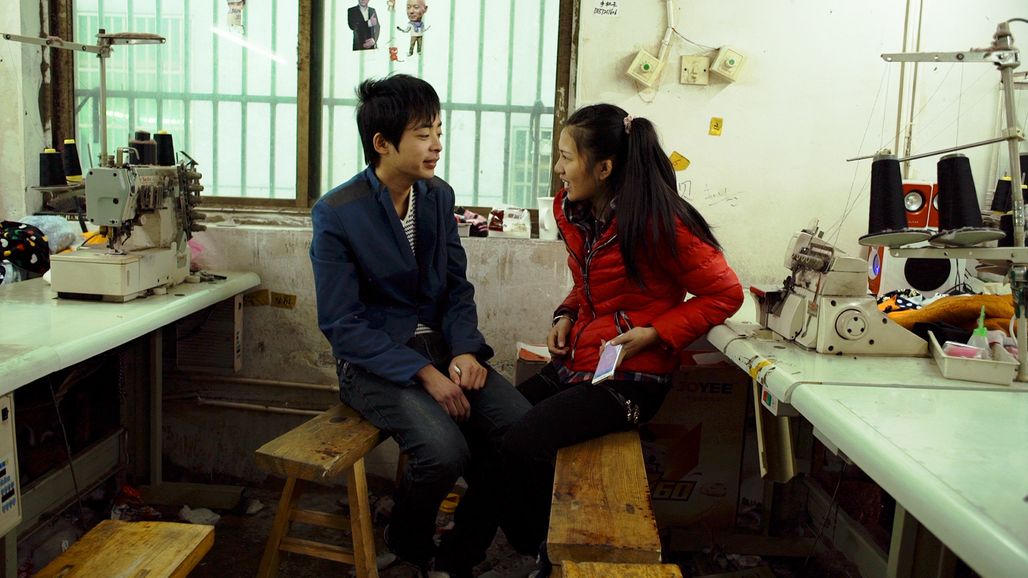
Wide-angle views: documentaries in Selection

In 2004, Michael Moore scooped the Palme d’or at the Grand Théâtre Lumière for his Fahrenheit 9/11, the hard-hitting documentary that was screened at Cannes and a damning indictment of the President of the United States at the time, George Bush. The film became the second documentary to win the big prize after Jacques Cousteau’s The Silent World in 1956. In 2023, documentaries are packing a powerful punch in the Selection.
Documentaries in Competition
Youth (Spring) ushers the documentary form back into the Competition limelight: from 2014 to 2019, Wang Bing took his camera to the factory floor on the banks of the Yangtze, getting up close and personal with working-class China. From tiny workshops to cramped dorms, the Chinese filmmaker remained true to his style in choosing to “film people, not the collective“. Speaking at a press conference, he said that what interests him “is the individual“, explaining that his aim was to shine a light on the realities of rural China’s working classes: “Rural people leave the villages where they were born to go and work in the more economically developed regions, including the Yangtze Delta “.
Somewhere between documentary and fiction is another Palme d’or contender: Kaouther Ben Hania‘s Les Filles d’Olfa (Four Daughters), a fast-paced investigation based on a true story, and structured in unprecedented form. The Tunisian screenwriter and director was gripped by Olfa’s way of speaking when she first heard the mother on the radio one day by chance. The vivid, colourful pictures she painted with her words fascinated the film-maker: “In all her rich palette of emotions, I instantly thought that Olfa was a character straight out of a film “.
Five documentaries presented in Special Screenings
Shifting from one genre to another, some film-makers refuse to rest on their laurels by sticking to a single format. Brazilian director Kleber Mendonça Filhois a case in point, going from thriller (Bacurau, which won the(Jury Prize in 2019) to documentary with Retratos Fantasmas (Pictures of Ghosts) : ” I don’t think ideas for films come to us in a perfectly linear, structured fashion, despite how the industry tries to format creativity” . Drawing on his own personal media library (tapes, VHS, Betacam, Super8, MiniDVD), the director serves up an archive film that winds its way back through the history of cinemas in his hometown of Recife.
Incredibly brave female directors draw on the Festival de Cannes as a platform for decrying the realities of the female condition in their countries. In Bread and Roses, Sahra Mani risks it all to champion women’s rights in Afghanistan. In Taliban-led Kabul, the film-maker’s camera follows three present-day women banned from working and studying: “We’ve said it before, and we’ll say it again: to make peace with the Taliban is to condemn the women of Afghanistan“.
In her documentary/fiction hybrid Little Girl Blue, Mona Achache draws on the mother she lost in 2016, retracing her past and bringing her personality back to life in a resurrection that is not without risk. Marion Cotillard plays her on-screen mother, and succeeds in accomplishing “the sorrowful fantasy of bringing her back to life so that she might explain the reasons why she committed suicide,” explains the director. As if providing release for this almost cursed line of women.
Two of the acclaimed artists whose films are in Competition are also taking to the screen in the Special Screenings, switching between fiction and documentary categories. In Anselm, Wim Wenders pays tribute to contemporary German painter Anselm Kiefer, whose powerful work has always inspired the film-maker. And in a similar vein, Wang Bing turns the spotlight onto another artist with his sixty-minute Man in Black, a portrait of dissident Chinese composer Wang Xilin that unfolds in the Bouffes du Nord theatre.
Artistic essays
With Un Certain Regard’s La mère de tous les mensonges (The Mother of All Lies), Moroccan film-maker Asmae el Moudir explores the memory of her neighbourhood and country in a searing creative essay.
Cannes Classics generally includes documentaries that pay tribute to silver-screen legends. Ten have been chosen this year, including Lubna Playoust‘s Room 999, a continuation of Room 666 by Wim Wenders, forty years after the striking film that brought together sixteen directors, in which the German director asked each of them to answer the same question — a query firmly rooted in the realities of the time. Here, Lubna Playoust asks thirty directors: “Is cinema a language about to get lost?“.


